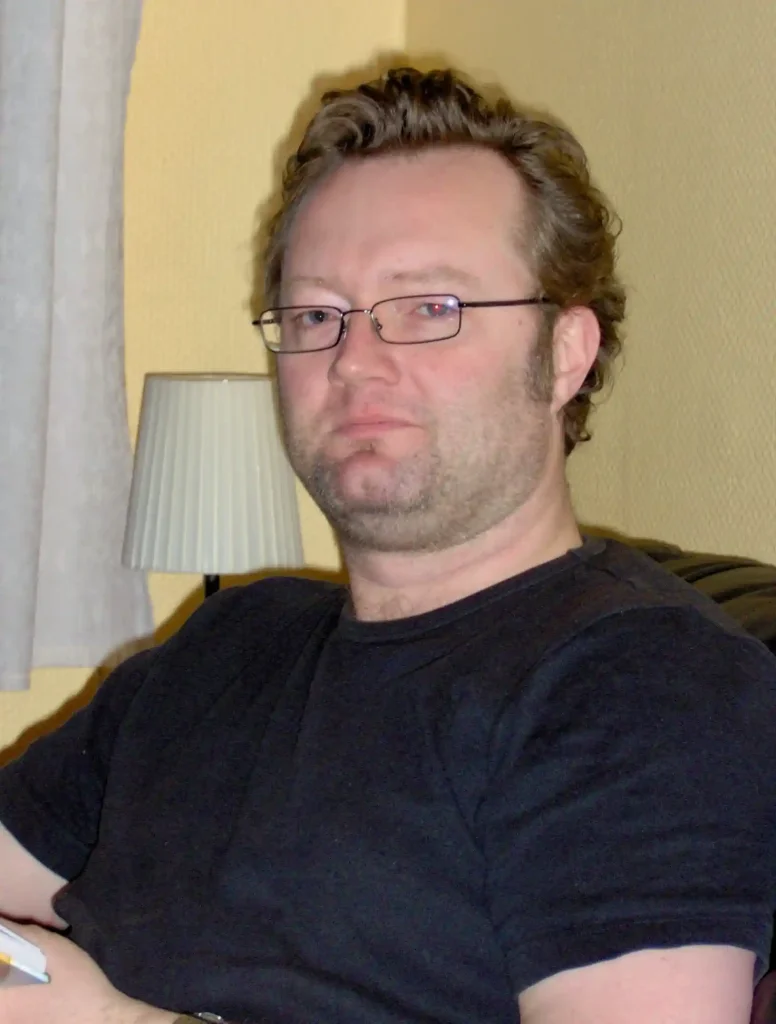Anxiety and depression: get out of the denial quagmire
You can’t solve a problem without admitting its existence.
It was dark and cold, but I went for a walk anyway. This happened not long before my 40th birthday, probably in December 2004 or January 2005. I needed to get out, clear my head and decide.
While walking along a slushy and icy path that night, I came to a conclusion. The next morning, I would call my GP’s office and request an emergency appointment. Once there, I would ask for sick leave and any treatment my GP could provide.
Why should this be such a big deal?
Well, it was for me. I had lived in denial for almost 40 years. On this wet and cold Norwegian winter night, I finally acknowledged my problem. Even though the shame was unbearable.
However, it was this or the alternative. The only alternative I saw was discontinuing my life.
(Featured image: Man walking on a snowy path – AI-generated illustration.)
“Yeah, but again, what’s the big deal here?”
Here it comes: I had suffered from anxiety for as long as I could remember, and when the anxiety became too terrible for too long, I fell into periods of depression.
It doesn’t seem like much, does it? The openness surrounding these issues has significantly improved in many cultures in recent decades. So much so that many people today label their ordinary sadness as depression and quite ordinary stress as anxiety.
However, the culture I came from was not like that. Not at all! A relative of mine was bedridden for months sometime in the late 1970s. When I inquired about what had happened to him, my mother felt the need to whisper her answer (even though only the two of us were present in the house):
“It’s the nerves.”
Yes, having issues with “the nerves” was so shameful that most people would have preferred a syphilis diagnosis. Having “nerves” implied weakness; God forbid, that wasn’t a label you wanted in the rather macho culture of rural Norway back in the day.
“Oh, come on, it couldn’t be that bad, not in our millennium.”
No? This is the story about what happened when I told a friend about my ‘condition’ for the first time.
This was a year or so after the cold and dark evening I decided to take action. An old friend of mine and I had some drinks, and after about ten of them, I had gathered Dutch courage enough to initiate this conversation:
“Eh, I’m crazy, you know.”
“Huh?”
“I have a diagnosis. Depression. I’m taking pills for it.”
“Hm. I would keep that to myself if I were you.”
He had been my friend for more than 20 years. He wasn’t fobbing me off; he was trying to protect me. With my best interests in mind, he wanted to warn me to be selective with who I talked to about these things.

“Okay, but where are we going with this?”
Oh, yes:
In my article Leaving anxiety and depression behind: how to get started, my #1 advice was: Acknowledge your problem. Why was it #1? If you miss out on this one, the other 39 pieces of advice in the article will be useless.
Acknowledging your problem is simply being honest with yourself. If you have a problem, you’ll never fix it if you don’t admit it exists. Otherwise, you’ll have no reason or motivation to address it, leaving you stuck with your problem forever.
Be aware: if you feel miserable yet keep telling yourself, “I’m okay” or “There’s nothing wrong with me,” you are living in denial.
My reasons for living in denial
Obviously, for me, it was mostly shame and fear of judgment, fear of being seen as weak and not normal. The unfair shame of totally normal mental challenges is definitely something that deserves an article on its own. I’ll return to that here on Deliberate 1.
But wait. When did I truly recognise I had a problem at all? Relatively shortly before I took action, I’m afraid. I felt miserable—I had felt miserable most of my life. I didn’t know life could be different. It’s difficult to acknowledge a problem when you don’t know how it feels not to have that problem.
Even when I started to be honest with myself, this doubt paralysed me for months: I had no reason to feel this way, and I didn’t deserve to feel better. Others had lived worse lives, and they were okay!
Comparing yourself to others is unnecessary and dangerous. I’ll also return to this in a later article.
Of course, you may have other good reasons
Here are some things I can imagine people are thinking:
- Fear of opening Pandora’s box. You have had so much emotional pressure inside you for so long that you fear what will happen if you even open the lid a little bit.
- Fear of being abandoned. You fear that your partner, family, friends, or colleagues will not only judge you but also abandon you if they get to know about your condition.
- Fear of being treated differently. You don’t want those in your environment to treat you differently, even if that means being treated better, because it would prove they don’t see you as ‘normal’.
- Fear of change. If you recognise a problem and admit it exists, you’re expected to take action, right? Well, that means changing something in your life. And change always brings some discomfort—or even pain.
- Fear that your problems cannot be solved. Why embark on a long and uncomfortable journey if there’s no destination?
But there is a destination:
Your future self

If you’re struggling with anxiety and depression, your journey away from them may be a long and winding road. But your future self is waiting at the end of that road. That person, your future self, will most likely not be totally carefree or eternally happy because no one is.
However, if you do your part now, your future self might have a good and meaningful life—a much better life than the present you. For that to happen, you will have to start your journey. Now. And to start your journey, you’ll have to accept that you have a journey to make.
That is, you must acknowledge you have a problem to solve. Please don’t wait for 40 years, as I did. The sooner you act, the longer and happier life you will give to your future self.















Post Comment
You must be logged in to post a comment.